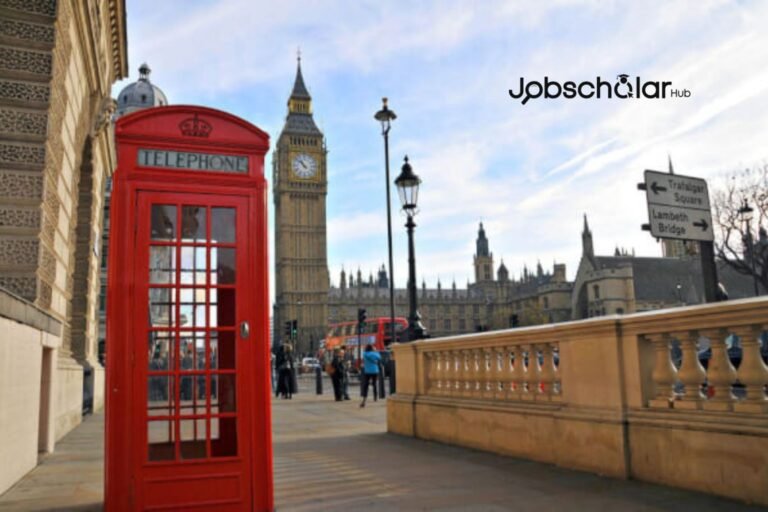How to immigrate to Ireland from USA? You’re not alone. Ireland’s rolling green hills, lively pubs, and famously warm locals have made it a magnet for U.S. expats craving change.
Maybe you’re after a tech job in Dublin’s booming scene. Or perhaps you just want to trade rush-hour traffic for coastal cliff walks. Either way, Ireland delivers—but let’s be real, moving countries isn’t all cozy pubs and friendly banter.
Between visa fine print and hunting for housing, the logistics can feel overwhelming. (Ever tried decoding Irish rental ads? “Cosy” often means “smaller than a New York closet.”)
Here’s the good news: We’ve got your back. This guide walks you through:
- Visa hacks (yes, Americans can stay beyond 90 days—here’s how)
- Real talk on costs (spoiler: Dublin rents will sting if you’re used to Midwest prices)
- Job tips (from work permits to thriving industries)
One thing’s certain: Ireland’s magic isn’t just in the scenery—it’s in the craic (that’s Irish for unforgettable moments). Ready to make the leap?
Related:Top 10 Easiest Countries to Immigrate from the US.
Can I Immigrate to Ireland from USA?
Yes, you can move to Ireland—plenty of Americans already have. Why? Picture rolling green hills, pubs where strangers feel like friends, and weekend trips to Paris or Lisbon. It’s no wonder more people keep making the jump every year.
But (and there’s always a “but”), it’s not as simple as booking a one-way ticket. Your move hinges on one thing: snagging the right visa or residency permit. Work, family ties, or even that Irish grandma you’ve heard stories about—any could be your golden ticket.
Speaking of family… Got Irish roots? Dig into them. Citizenship by descent isn’t just for luck; it’s a fast pass to living, working, and thriving in Ireland like a local. No visa headaches, just the freedom to stay as long as you want.
So, can you go? Absolutely. The real question: What’s your path in?
Also Related: Construction Skills Certificate Scheme (CSCS)
Living in Ireland as an American
Immigrate to Ireland as an American? Get ready for rolling green hills, cozy pubs, and the occasional language surprise—yes, English is everywhere, but you’ll still catch Irish Gaelic in signs, songs, and casual chats. It’s part of the charm.
The Irish don’t just know their history—they live it. From Dublin’s buzzing streets to Galway’s tight-knit music scenes, there’s a strong sense of community. (Just brace yourself for the weather. Rain isn’t a sometimes thing here—it’s a lifestyle.)
Getting around? Trains and buses are solid, though having a car helps if you’re outside the cities. Healthcare’s affordable, but here’s the catch: wait times. A lot of expats grab private insurance just to skip the queue for non-urgent stuff.
Bottom line? Ireland’s warm where it counts (the people) and chilly where you’d expect (the air). Pack a good jacket—and an open mind.
Check out: Top 5 PhD Scholarships in the UK in 2025 and How to Apply for Them
Legal ways to Immigrate to Ireland from USA
Dreaming of swapping US life for the Emerald Isle? Luckily, Ireland offers multiple legal pathways—but which one fits your situation?
Your options depend on things like your career, family ties, or financial plans. Some routes are straightforward; others take more paperwork. Let’s break them down:
1. Moving to Ireland for work
Dreaming of swapping your current view for Ireland’s rolling green hills? Getting a job there is one of the easiest ways to make it happen. But let’s break it down—because not all work visas are the same.
First things first: You’ll need a job offer from an Irish employer. And not just any employer—they’ve got to be approved to hire foreign workers. Once you’ve got that golden ticket, it’s time to figure out which permit fits your situation.
Which Work Permit Works for You?
- Critical Skills Employment Permit – Perfect if you’re in a high-demand field (think tech, engineering, or healthcare).
- General Employment Permit – Covers a wider range of jobs, but comes with a few more conditions.
The whole process runs through Ireland’s Department of Business, Enterprise, and Innovation—sounds fancy, right? Just remember: paperwork is your new best friend.
2. Emigrate to Ireland based on a de facto relationship
Got a long-term partner who’s Irish or legally living in Ireland? You might be able to join them! Ireland recognizes committed relationships—even if you’re not married.
What’s needed?
- Proof you’re a genuine couple, like showing you’ve lived together for at least two years. Bills, leases, or joint accounts work as evidence.
- Your Irish partner must meet income thresholds—they’ll need to prove they can support you financially.
Once you’ve got everything together, submit your application to the Irish Naturalisation and Immigration Service (INIS).
Check this out: How Much Does a Work Visa for Europe Cost? Application Guide
3. Moving to Ireland as a family member of an employment permit holder
Got a spouse or partner working in Ireland on an employment permit? You can apply for a visa to join them—and maybe even work there yourself while they’re employed.
This option isn’t just about paperwork; it’s about keeping families together. Instead of being separated by borders, you can live in Ireland together while your partner continues their job. No need to put life on hold.
Best part? It’s a win-win. Families stay united, and skilled workers get the stability they need to thrive abroad.
4. Moving to Ireland to study
Dreaming of earning your degree in Ireland? Good news—Americans can apply for a Study Visa, opening the door to world-class universities and a truly immersive international experience.
Why Ireland? It’s not just the stunning landscapes or friendly locals (though those help!). The country boasts top-ranked schools like Trinity College Dublin and University College Cork, attracting students globally. Once your visa’s approved, you’re set to live there for your entire program—no renewals mid-degree.
And here’s a perk: You can work up to 20 hours a week during the semester. Need extra cash for weekend trips to the Cliffs of Moher or a pint at a Dublin pub? A part-time job helps cover costs while keeping studies the priority.
Also Related: 10 Easiest Countries to Get a Work Visa in 2025
5. Emigration through family ties
Got Irish roots? You might be able to claim citizenship through your family line. Plenty of people discover they’re eligible thanks to a grandparent—or even a great-grandparent—born on the Emerald Isle.
The catch? You’ll need paperwork. Birth certificates, marriage records, anything that ties you to Ireland. Once you’ve gathered proof, it’s time to file an application with the Irish embassy.
The upside? If approved, you won’t just get citizenship—you’ll skip the usual visa hassles entirely. One less headache when making the move!
6. Other emigration routes to Ireland
Not everyone fits the standard work visa path—but don’t worry, Ireland’s got options.
Ever heard of the Investor Visa? If you’ve got significant funds to put into Irish businesses or government bonds, this could fast-track your residency. It’s a route some high-net-worth individuals take when they want to settle in Ireland without the usual work permit hurdles.
Then there’s the Start-up Entrepreneur Program—perfect if you’ve got a business idea brewing. Ireland actually encourages foreign entrepreneurs to set up shop there. If your start-up plan is solid, it might just be your ticket in.
So yeah, even if the typical work visas don’t apply to you, there are still ways to make the move happen.
Related: How to Switch to a Global Talent Visa in the UK: A Comprehensive Guide
Working in Ireland as an American
Moving to Ireland as an American isn’t just about stunning landscapes and cozy pubs—it’s also a golden career opportunity. The Irish economy is buzzing, especially in tech, pharma, finance, and education. Oh, and guess what? Big-name U.S. companies like Google, Facebook, and Apple have set up shop there, so you might even land a job that feels like home (but with better tea breaks).
Work Culture: Chill But Skilled
Forget the American grind—Ireland leans more toward work-life balance. But don’t get too comfortable; they still expect top-notch skills, especially in high-demand fields. If you’ve got specialized experience, you’ll have a smoother time landing a job.
The Work Permit Hurdle (It’s Not That Scary)
Yes, you’ll need a work permit, but if you’ve already got a job offer, the process is pretty straightforward. And since everyone speaks English (with a charming accent), adjusting is way easier than in most places.
Why Ireland?
- Thriving industries with tons of opportunities
- U.S. companies everywhere—so networking feels familiar
- A more relaxed pace (without sacrificing career growth)
- No language barrier, just a fun new slang dictionary to learn (“What’s the craic?”)
If you’re an American looking to boost your career abroad, Ireland might just be your perfect match.
Related: How To Get Best USA Jobs With Visa Sponsorship
Cost of Immigration to Ireland from USA
Ireland’s cost of living? It really depends on where you settle. Dublin, for example, isn’t cheap—rent and eating out will take a big bite out of your budget. But you get what you pay for: top-tier healthcare, solid public transport, and a booming job market (especially in tech, finance, and pharma).
Breaking Down the Costs
Housing
- Dublin (city center): A one-bed apartment? Expect €1,500–€2,200/month. Ouch.
- Dublin (suburbs): Slightly better at €1,200–€1,500.
- Cork or Galway: More wallet-friendly—around €1,200–€1,600 in town, or €900–€1,300 further out.
Groceries
Two people can spend €300–€500/month—less if you hit up local markets, more if you’re all about fancy organic brands.
Utilities
Electricity, heating, water, trash? Roughly €120–€200/month for an average apartment. (Winter heating spikes? Yeah, brace yourself.)
Transportation
- Dublin: A monthly travel pass runs €100–€150.
- Elsewhere: You might need a car. Petrol’s around €1.40/liter—so factor in fuel costs.
Eating Out: Affordable… Until It’s Not
A casual meal? €12–€20 won’t hurt. But in Dublin, if you’re hitting up nice restaurants often, those bills add up fast.
Check this out: How to Successfully Apply for a Special Immigrant Visa (SIV) to the United States
Best places to live in Ireland for US expats
It is the dream to immigrate to Ireland from USA —whether you’re after big-city energy or cozy village life. From tech hubs to artsy coastal towns, here’s where you might want to plant roots.
- Dublin
No surprise here—Dublin is the top pick for many expats. It’s got everything: great jobs (especially in tech and finance), solid public transport, and that fast-paced international vibe. But be ready for sky-high rents and competitive housing. Still, if you’re a young professional or love being where the action is, Dublin’s hard to beat. Plus, with giants like Google and Apple around, networking’s a breeze - Cork
Dublin’s little sibling, Cork, packs a punch without the chaos. It’s cheaper, friendlier, and still buzzing with tech and pharma jobs. The city center’s gorgeous, the food scene’s fantastic, and life just moves at a more manageable pace. Great for families or anyone who wants career options and work-life balance - Galway
Artsy, lively, and right on the coast—Galway’s pure magic. Think street performers, legendary pubs, and festivals year-round. Job-wise, it’s not as packed as Dublin or Cork, but if you’re remote or in creative fields, you’ll love it here. Plus, the seafood is unreal. - Limerick
Limerick’s shaking off its old rep and turning into a hotspot for tech and engineering talent. Housing’s way cheaper than Dublin or Cork, and the city’s got a cool, youthful energy these days. If you want city perks without the insane costs, Limerick’s a smart bet. - Countryside options
Prefer sheep to skyscrapers? Ireland’s villages are postcard-perfect. Counties like Clare, Kerry, and Wicklow offer rolling hills, cozy pubs, and tight-knit communities—all while staying within reach of bigger cities. Ideal if you’re craving peace, nature, and a proper “good morning” from your neighbors.
Taxes for US expats in Ireland
Figuring out taxes as a U.S. expat in Ireland? You’ll need to juggle both the IRS and Irish Revenue. It’s a bit of a headache, but here’s the scoop.
Ireland uses a progressive tax system—so the more you earn, the bigger the chunk taken out. Not fun, but at least it’s predictable.
The good news? The U.S.-Ireland tax treaty helps you dodge double taxation. Tools like the Foreign Tax Credit or exclusions can save you from paying twice on the same income. (Small mercies, right?)
Pro tip: Before packing your bags—or worse, buying property or launching a business—talk to a local tax expert. A quick consult now could save you a nasty surprise later.
Pros and cons of immigrating to Ireland from USA
Ireland’s got charm, craic (that’s Irish for fun), and cozy pubs—but is it the right to immigrate to Ireland from USA? Let’s break it down, no fluff.
Pros:
- Culture that feels alive – Trad music sessions, world-class arts, and a deep sense of history. You won’t be bored.
- Healthcare that won’t bankrupt you – Public options are solid, and you’ll pay way less than in the States.
- People who actually want to chat – Irish folks are famously warm, and expat communities make settling in easier.
- Jobs without the burnout – Tech, pharma, and finance are booming, and work-life balance? Way better than the US grind.
Cons:
- Your wallet will feel it – Dublin’s pricier than NYC in some ways (yes, really). Rent? Ouch.
- Rain is basically a personality trait – If you hate gray skies, think twice. Vitamin D supplements might become your bestie.
- Paperwork nightmares – Visas, residency permits… bureaucracy here loves its red tape. Patience required.
- Finding a home? Good luck – Apartments vanish fast, and prices are wild. Start hunting before you land.
Bottom line? Ireland’s incredible if you can handle the rain and rent. But if sunshine and cheap living are non-negotiables, maybe visit first.
Related:Jobs in BRICS Nations: Best Industries to Watch in 2025
Frequently Asked Questions
1. Can I move to Ireland permanently as a US citizen?
Absolutely! You’ve got options—work visas, family ties, or even investment routes like Ireland’s Golden Visa. Stick around legally for five years, and you can apply for permanent residency.
2. How long can I stay in Ireland without a visa?
For short trips? Up to 90 days for tourism or business. But if you’re thinking longer term, you’ll need to sort out a residence permit before those 90 days are up.
3. Can Americans retire in Ireland?
Yep! The retirement visa (officially called the Stamp 0) is an option if you’ve got steady income and solid health coverage. Some retirees also use the EU-US tax treaty to make the move smoother.
4. Is health insurance a must in Ireland?
Technically, no—but practically, yes. Ireland’s public healthcare covers basics, but wait times can be long. Most expats grab private insurance for faster care. After a year, you might qualify for public coverage, but don’t bank on it right away.
5. Can I work in Ireland as an American?
Sure—if you land a work permit. High-demand jobs (tech, engineering, healthcare) often qualify for the Critical Skills visa, while other roles might need a General Employment Permit. No permit? No legal work. Simple as that.
Conclusion
Moving to Ireland from the US? Big move—but so worth it. Picture this: rolling green hills, lively pubs, and that famous Irish charm. Whether you’re chasing a career, starting school, retiring, or just craving a change, Ireland rolls out the welcome mat. Sure, there’s paperwork (ugh), but the process isn’t as scary as it seems—if you know the tricks.
First things first: figure out your visa. Work, study, family ties—each path has its own hoops to jump through. Then there’s the fun stuff: finding a place, budgeting for rainy-day savings (because, Ireland), and maybe even mastering the art of small talk about the weather.
Pro tip? Don’t wing it. Get organized early. Hit up government websites, join expat Facebook groups, and ask anyone who’s done it before. Before long, you’ll be sipping a creamy Guinness in your new local, laughing at how “grand” everything really is.






